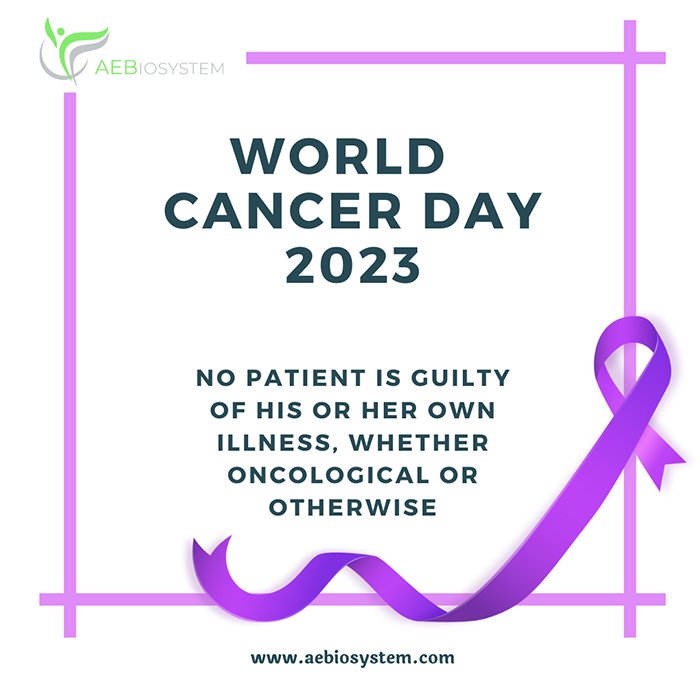February 4 marks World Cancer Day, World Cancer Control Day, promoted by the UICC – Union for International Cancer Control, and supported by the World Health Organization (WHO).
On the occasion of this day, I would like to report my thoughts about my training experience in psychotherapy with cancer patients. This experience originated within the SIPSI (RM) School of Specialization in Psychotherapy in the Institutional Setting, where I did my four-year training internship as a resident at the Psychiatric Consultation Service of the Agostino Gemelli University Polyclinic Foundation in the Psycho-Oncology Area. Patients entrusted to me made requests for consultation at the Service, and here I began my training in the Area of Psycho-Oncology.
My choice to devote myself to this area stemmed from a family experience in which I witnessed firsthand a family member of mine suffering from squamous cell carcinoma of the vocal cords. In my experience, I had the opportunity to see how in the waiting rooms of the wards where radiation and chemo therapies are performed, often the patient, many times unaccompanied, experiences the wait for the administration of therapy in solitude.
This created a deep sadness in me because I empathized with their experience and the only feeling I felt was that of a great emptiness accompanied at the same time by a very strong need to have to talk to someone, to distract myself and to make time pass sooner. This gave rise to my desire to make a contribution to cancer patients who needed psychological assistance in their course of treatment and post-healing. Every phase in these situations is important: the waiting for the diagnosis, the course of treatment, the period afterwards, the months to follow, where while there is the relief of being done, on the other hand there is the fear of recurrence. It becomes essential to be with them at every stage. I have a deep appreciation for them because very often it was they who taught me the importance of life and the struggle to defend it. Often those who are unaffected forget how fortunate they are in being well, and consider the state of health as a condition taken for granted, forgetting the importance of prevention.
I remember that a patient of mine, whom I followed for four years, was living in a deep state of guilt for skipping the routine breast checkups she had, having had cases in her family, and for covering up after two years that she had breast cancer. She lived in regret that she had not had the annual checkup and in guilt that if she had, she would not have experienced the cancer disease. In such cases our role as psychotherapists becomes crucial because these experiences are not processed in a few sessions but it is a journey that requires the calmness of giving oneself time to process emotions, feelings, anxieties and fears. Sometimes it takes years, to gain courage and awareness of one’s mental experiences.
With patients, the first few sessions are very important, because they are full of meaningful content and phrases that even after a long time take on a value and meaning that we therapists would never have given at the beginning. I remember a Professor, who is often explored in depth in Master’s degree courses in Clinical Psychology, Antonio Alberto Semi, who in his book Technique of Colloquy (1985) argued that three may be the typical openings of patients: they may begin to tell about their present symptomatology, some
remain in a superficial dimension by talking about work and their present circumstances, still others, already from the first session, start from the premises and open up about their past. The cancer patient often communicates his or her experience right away. The common, wrong cliché that people often refer to is that the cancer patient is “depressed” or “sad.” Nothing could be more false. The cancer patient is very lucid, and in their lucidity one emotion that we therapists often encounter in talking to them is that of anger. This is because, rightly, he does not accept what has happened and cannot give himself a reason why that evil happened to him in particular. He would like to understand it and interprets it as a punishment often for a life lived inadequately. Many patients come to therapy to deal with these thoughts of their own.
The patient’s personal interpretations of his or her illness constantly influence the patient’s perception of himself or herself. It is important for us as therapists, and for the patient, to be able to understand that, in each case, the interpretation one gives of the cancer illness is filtered through the patient’s overall life experience. Once he has communicated his experience to us, the patient does not want to be abandoned. I remember another patient, always followed during these years of field training, who at the end of her session, during which she had related her oncological past to me, turned to me and asked me not to abandon her. With the advent of the pandemic, online psychotherapy has allowed me not to abandon my patients, and to remotely monitor their mental and even physical conditions, because we psychotherapists, we cannot leave out any sphere of the patient’s life. We mentally accompany him at every one of his follow-up visits and at every other stage of his journey. We follow him when he has routine tests, specialist visits, when he has ultrasounds, monitoring CT scans, MRIs, and we become participants in his journey. The cancer patient experiences, in his course of treatment, very deep waits: waits for answers, waits for doctor’s visits, waits for treatment to begin. Online psychotherapy, allows us psychotherapists to help them promptly without having to create additional waits. Travel time to come to our office is canceled, hindrances due to traffic, transportation, work schedules are canceled. It was a surprise to discover, in pandemic, how well patients were predisposed toward a remote mode of care.
Based on my professional and personal experience, I can say that I believe deeply in the value of telehealth and telemonitoring. Many patients for physical reasons cannot move and following them while preserving their condition without subjecting them to travel becomes of paramount importance, especially in cases where, as in the cancer patient, their immune system becomes more delicate. I believe deeply in an evolution of the National Health System, in the hope that it can become modern and that it can guarantee equal modes of care for every citizen everywhere. The first to believe this should be we professionals who, moving out of classical modes of care, should adapt to social and cultural changes, and often patients are quicker to do this than we are. Because in them is the primal motivation to live, while we on the other side are more reluctant to question our methods. Opening the doors to telemedicine, telehealth, and telemonitoring would help the patient to contain the anxieties due to waiting: no more queues, no more empty trips to then find any problems in the ward, no more inconvenience. This would also make them an active part of their care journey, more autonomous, with a positive return in terms of self-esteem as well. Especially when, as mentioned earlier, the patient falsely blames themselves for their illness. Self-monitoring and self-management could give them a way to process their guilt and come to the conclusion that it is unfounded guilt. No patient is at fault for their illness, whether oncological or otherwise, and no one should be left alone in their expectations any longer.
Dr. Giovanna Giarrusso

